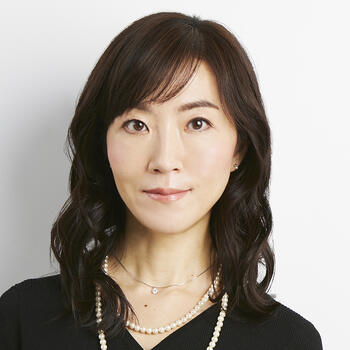Few aspects of society are being transformed by technology more than health and medical care, with health systems challenged to finance and deliver affordable access to a burgeoning array of technologies enabling longer, healthier lives. Three speakers will address different and complementary aspects of how several Asian health systems create, evaluate, and regulate transformative technologies. Dr. Masuda’s research probes policies governing domestic and cross-border control and sharing of genetic information for medical innovation. Dr. Ahn will discuss health technology assessment (HTA) for pricing and reimbursement decisions in South Korea, where there is a young yet established HTA program, compared to Japan, where a 3-year HTA pilot program has just concluded, and China, where HTA efforts are underway but have not been formally implemented. Finally, Dr. Ho will discuss the emergence of digital medicine enabling N-of-1 regimen design for patients. Truly individualizing patient treatment requires addressing a series of challenges, from dynamic patient response to treatment regimens, to accounting for drug synergies in combination therapies which can be dose-dependent, time-dependent, and patient-specific, such as in oncology. Dr. Ho will summarize several clinical studies aiming to increase accessibility to personalized, precision medicine while reducing healthcare costs.
Sachiko Masuda is a Visiting Scholar at the Walter H. Shorenstein Asia-Pacific Research Center (Shorenstein APARC) for the 2021-22 academic year and an Associate Professor at the University of Tokyo, Research Center for Advanced Science and Technology. Masuda is dedicated to the study of legal systems, regulations, infrastructure and industrial structures necessary for advances in technology and a safer society, especially in the pharmaceutical and medical fields. At Shorenstein APARC, she is conducting a comparative Japan-U.S. study on "Human Genetic Information for Medical Innovation: Examining Policy Issues Related to Ensuring Domestic and Transnational Sharing and Management" supported by the ABE Fellowship Program of the Social Science Research Council. Masuda received a Ph.D. (specializing in intellectual property law) in 2006 and a B.S. in Pharmaceutical Sciences in 1997 from the University of Tokyo.
Dr.
Jeonghoon Ahn is a full professor at the Ewha Womans University (Seoul, Korea) and an adjunct fellow at the National Evidence-based healthcare Collaborating Agency (NECA), Seoul, Korea. He is an expert on health technology assessment (HTA) and health economics. He worked 7 years in NECA and served in various decision making and advisory committees of public agencies such as the Health Insurance Review and Assessment Services (HIRA) and the Korean Centers for Disease Control (KCDC). Professor Ahn has graduated the Seoul National University Department of International Economics for undergraduate and master program. He also received a PhD in Economics from the University of Southern California (USC) and was an assistant professor of pharmaceutical economics and Policy at the USC. Dr. Ahn has served on many international professional organizations such as ISPOR, HTAi, INAHTA, and HTAsiaLink. He is the Chair of the ISPOR Asia Consortium (2020-2022) and was a president of ISPOR Korea Chapter (2012-2014). Dr. Ahn was elected as a board director of the Health Technology Assessment International (HTAi) (2014-2016) and a board director for the International Network of Agencies for Health Technology Assessment (INAHTA) for three times (2012-2016). He also contributed to form a regional Health Technology Assessment agency network, the HTAsiaLink (
www.htasialink.org), along with other experts in the region.
Professor
Dean Ho is currently Provost’s Chair Professor, Director of The N.1 Institute for Health (N.1), Director of The Institute for Digital Medicine (WisDM) and Head of the Department of Biomedical Engineering at the National University of Singapore. Prof. Ho and collaborators successfully developed and validated CURATE.AI, a powerful digital medicine platform that has optimized human treatment for broad indications ranging from oncology to infectious diseases. He co-led the first inhuman clinical trials that have resulted in completely halted disease progression and durable patient responses that substantially outperformed standard of care approaches. Prof. Ho is a Fellow of the US National Academy of Inventors (NAI), the American Institute for Medical and Biological Engineering (AIMBE), and the Royal Society of Chemistry. He was also recently named to the HIMSS Future50 Class of 2021 for his internationally-recognised leadership in digital health. His discoveries have been featured on CNN, The Economist, National Geographic, Forbes, Washington Post, NPR and other international news outlets. Prof. Ho is also a Subgroup Lead in the World Health Organization (WHO)-ITU AI for Health Working Group for Regulatory Considerations. Prof. Ho is a recipient of the Tech Heroes from Crisis Pathfinder Award from the Singapore Computer Society, NSF CAREER Award, Wallace H. Coulter Foundation Translational Research Award, and V Foundation for Cancer Research Scholar Award, among others. He has also served as the President of the Board of Directors of the Society for Laboratory Automation and Screening (SLAS), a 26,000+ member global drug development organization.
This event is part of the 2022 Winter webinar series, New Frontiers: Technology, Politics, and Society in the Asia-Pacific, sponsored by the Walter H. Shorenstein Asia-Pacific Research Center.




